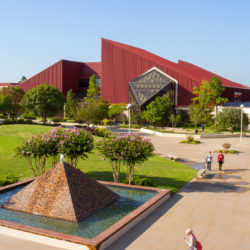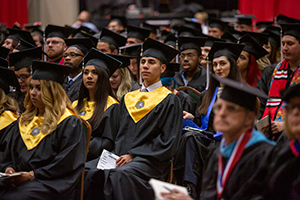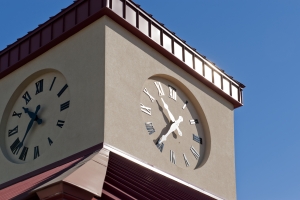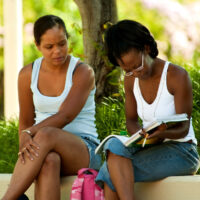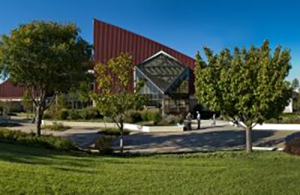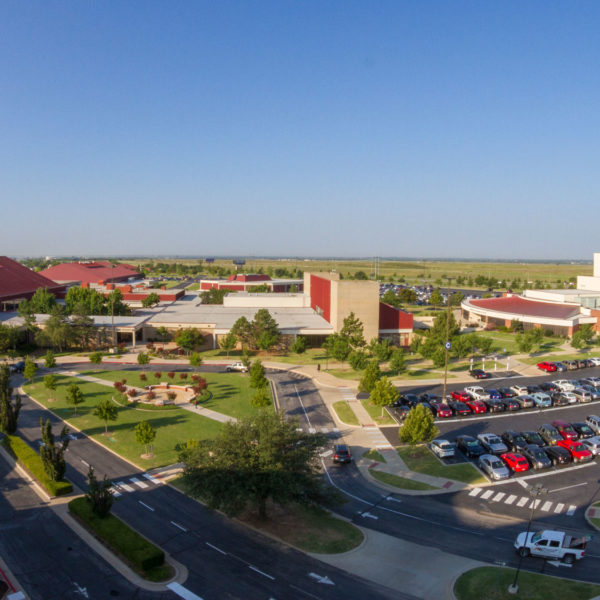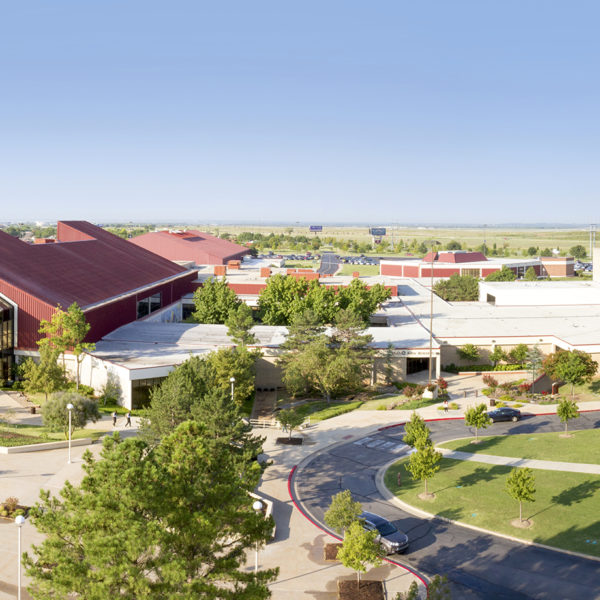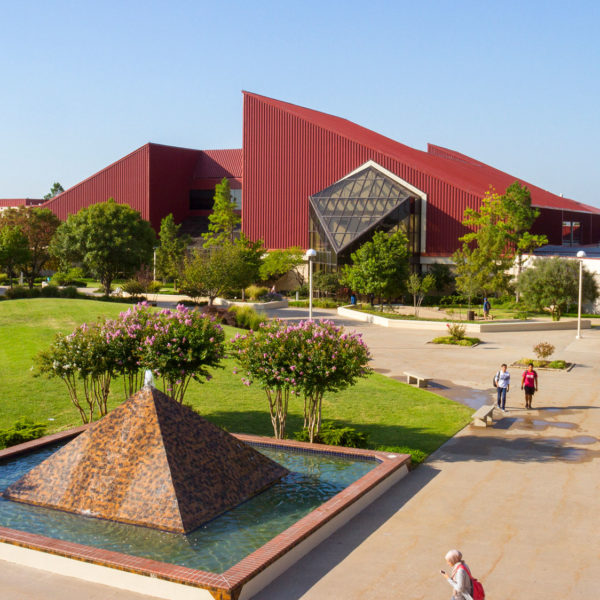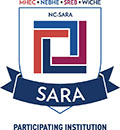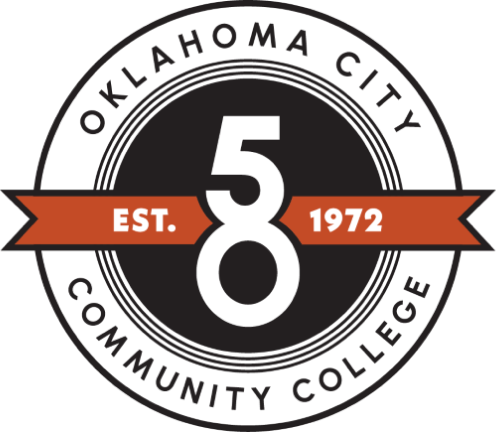| Term 1 |
| EMS 1019 | Emergency Medical Technology | 9* | Major | C |
| The student will be able to do the following by describing the role of the Emergency Medical Technician in an emergency medical services system: perform patient assessment on patients with traumatic injuries and patients with medical emergencies, manage a multi-casualty incident including triage, correctly manage traumatic injuries to the body and its systems, as well as medical emergencies of varying types and causes, perform lifting and moving techniques and light extrication. The student will summarize and interpret legal responsibilities of safe ambulance operations; evaluate psychological and physical factors affecting safe emergency vehicle operations, incident command, hazardous materials incidents, crime scene awareness, rescue awareness. The student will demonstrate techniques for gaining access to the patient, disentanglement, patient movement, and recognize and manage situations posing threats to patients, EMT’s or bystanders. This course includes, principles of safely operating a ground ambulance, and current required NIMS and Hazardous Materials training. Additionally, the student will describe current EMS law as it applies to the EMT. A field and hospital practicum are an integral part of the course, for which liability insurance, a student uniform, and a physical, including certain immunizations, are required. Prerequisites: ENGL 0203, adequate placement score, or by meeting determined placement measures
|
| BIO 1314 | Human Anatomy and Physiology I | 4 | Support | C |
| Through a systematic study of the structure and function of the human body, its cells, tissues, organs and systems, the student will identify and describe basic anatomical structures and fundamental physiological processes that occur in health and disease for the major body systems. Laboratory work which requires dissection is an integral and required part of the course.Prerequisites: ENGL 0203 or adequate placement score or by meeting determined placement measures; MATH 0103 or adequate math placement. An adequate biology placement test score or BIO 0123 or a college-level biological science class.
|
| Term 2 |
| EMS 1019 | Emergency Medical Technology | * | Major | C |
| The student will be able to do the following by describing the role of the Emergency Medical Technician in an emergency medical services system: perform patient assessment on patients with traumatic injuries and patients with medical emergencies, manage a multi-casualty incident including triage, correctly manage traumatic injuries to the body and its systems, as well as medical emergencies of varying types and causes, perform lifting and moving techniques and light extrication. The student will summarize and interpret legal responsibilities of safe ambulance operations; evaluate psychological and physical factors affecting safe emergency vehicle operations, incident command, hazardous materials incidents, crime scene awareness, rescue awareness. The student will demonstrate techniques for gaining access to the patient, disentanglement, patient movement, and recognize and manage situations posing threats to patients, EMT’s or bystanders. This course includes, principles of safely operating a ground ambulance, and current required NIMS and Hazardous Materials training. Additionally, the student will describe current EMS law as it applies to the EMT. A field and hospital practicum are an integral part of the course, for which liability insurance, a student uniform, and a physical, including certain immunizations, are required. Prerequisites: ENGL 0203, adequate placement score, or by meeting determined placement measures
|
| SCL 1001 | Success in College and Life | 1 | Life Skills | |
| Students will learn best practices for academic, career, and personal success. Students will discover their individual strengths, interests, and values to create a personalized plan; select and utilize resources that are applicable to their growth and success; and engage as active and responsible members of the academic community. This course should be taken during a student’s first semester of college work at Oklahoma City Community College and is a required course in degree plans to satisfy the Life Skills requirement.Prerequisites: ENGL 0106 or adequate reading/writing assessment scores
|
| Term 3 |
| EMS 1314 | Paramedic Care I, Introduction to Paramedicine | 4 | Major | C |
| Paramedic Care I introduces the student to basic EMS knowledge, life span development, an advanced level patient assessment, clinical reasoning, and the components of safe quality care. The student will be expected to accept accountability for personal learning and performance which reflects a fundamental understanding of EMS history and a complex understanding of EMS systems, roles, responsibilities, professionalism of EMS personnel, of quality improvement, patient, public and workforce safety, workforce wellness, documentation, communication, patient assessment, and research principles including ethics, legalities, and standards of paramedic practice. Includes Laboratory and Clinical Shifts.Prerequisites: EMS 1019; or National Registry of EMT certification (EMT, AEMT or EMT-I); Pre or Corequisite; BIO 1314 Human Anatomy and Physiology I.
|
| BIO 1414 | Human Anatomy and Physiology II | 4 | Support | C |
| With Human Anatomy & Physiology I as a foundation, the student will advance his or her study of the structure and function of the human body and will identify and describe more detailed anatomical structures and more comprehensive physiological processes that occur in health through a systematic survey of the major body systems. Laboratory work which requires dissection is an integral and required part of the course.Prerequisites: BIO 1314 with a grade of “C” or higher
|
| Term 4 |
| EMS 1324 | Paramedic Care II, Trauma Emergencies | 4 | Major | C |
| Paramedic Care II is a study of all age groups, of advanced assessment, pathophysiology, and management of trauma emergencies. Course to include clinical reasoning and the development of treatment plans. The student will be expected to accept accountability for personal learning and performance which reflects a complex understanding of circulatory support, hemorrhage, all etiologies of shock, resuscitation, chest, abdominal, genitourinary, orthopedic, soft tissue, head, neck, face, nervous system, environmental and multi system trauma, and to apply standards of paramedic practice. Includes Laboratory and Clinical Shifts.Prerequisites: Pre or Corequisite: EMS 1314 Paramedic Care I
|
| MATH 1483 | Functions and Modeling | OR | Gen Ed | |
| The student will demonstrate: an understanding of the general concepts of relation and function and
specifically of polynomial, rational, exponential and logarithmic functions; the ability to solve systems of
equations by utilizing matrices and determinants; and, the ability to solve practical problems using
algebraic and digital techniques. Prerequisites: MATH 0313 or adequate math placement; ENGL 0203, adequate placement score, or by meeting determined placement measures
|
| MATH 1503 | Contemporary Mathematics | 3 | Gen Ed | |
| A study of the mathematics needed for critical evaluation of quantitative information and arguments (including logic, critical appraisal of graphs and tables); use of simple mathematical models, and an introduction to elementary statistics. This course satisfies the computer proficiency requirement.Prerequisites: MATH 0313 or adequate math placement. Pre or Co-requisite ENGL 1113 or ENGL 1103
|
| Term 5 |
| EMS 1334 | Paramedic Care III, Medical Emergencies I | 4 | Major | C |
| Paramedic Care III, Medical Emergencies I is a study of adult epidemiology, psychosocial impact, pathophysiology, presentation, prognosis, and management of medical emergencies. Course to include clinical reasoning and the development of treatment plans. The student will be expected to accept accountability for personal learning and performance which reflects a complex understanding and ability to apply knowledge and skills to neurological emergencies; allergies and anaphylaxis; abdominal and gastrointestinal disorders; immunological, endocrinological, toxicological, hematological, genitourinological, renal, non-traumatic muskuloskeletal, behavioral and psychiatric disorders; infectious diseases; and the application of standards of paramedic practice. Includes Laboratory and Clinical Shifts.Prerequisites: EMS 1324 Paramedic Care II, Trauma Emergencies; Pre or Corequisite: BIO 1414 Human Anatomy and Physiology II, EMS 1113 ECG Interpretation.
|
| EMS 1113 | ECG Interpretation and Procedures | 3 | Major | C |
| ECG Interpretation introduces the student to the electrical conduction system of the heart and basic ECG interpretation of cardiac rhythms and dysrhythmias and procedures related to the management of these dysrhythmias. The student will be expected to accept accountability for personal learning and performance which reflects a fundamental understanding of basic ECG interpretation, 12 lead interpretation including identification of acute myocardial infarction, application and acquisition of 12 lead ECG, defibrillation, cardioversion and transcutaneous pacing. This course is designed for paramedic students, nursing students, graduate nurses, CCU monitor technicians and other healthcare providers who require ECG interpretation skills. Prerequisites: ENGL 0203, adequate placement score, or by meeting determined placement measures
|
| Term 6 |
| EMS 2044 | Paramedic Care IV, Medical Emergencies II | 4 | Major | C |
| Paramedic Care IV is a study and practical application of adult epidemiology, psychosocial impact, pathophysiology, and management of respiratory and cardiovascular emergencies. Course to include clinical reasoning and the development of treatment plans. The student will be expected to accept accountability for personal learning and performance which reflects a complex understanding and ability to apply knowledge and skills in scenario based education to respiratory and cardiovascular emergencies and apply standards of paramedic practice. Advanced Cardiac Life Support certification, Laboratory and Clinical Shifts included.Prerequisites: EMS 1324 Paramedic Care II; Pre or Corequisite: BIO 1414 Human Anatomy and Physiology II, EMS 1113 ECG Interpretation.
|
| ENGL 1113 | English Composition I | 3 | Gen Ed | |
| The student will write well-developed compositions which demonstrate the principles of unity, coherence, and organization and which contain specific details and vivid language. The students will locate library material and incorporate researched materials into compositions.Prerequisites: ENGL 0203, adequate placement score, or by meeting determined placement measures
|
| Term 7 |
| EMS 2054 | Paramedic Care V, OB and Pediatric Emergencies | 4 | Major | C |
| Paramedic Care V is a study of neonatal and pediatric conditions and emergencies including epidemiology, psychosocial impact, anatomy, physiology, pathophysiology, presentation, prognosis, and management. Course to include clinical reasoning and the development of treatment plans.
The student will be expected to accept accountability for personal learning and performance which reflects a complex understanding and ability to apply knowledge and skills in common neonatal and pediatric disorders and emergencies including respiratory, cardiovascular, shock and resuscitation, technology dependent, chronic illness emergencies, abuse, neglect, and poverty using the application of standards of paramedic practice. Includes Pediatric Advanced Life Support certification, Laboratory and Clinical Shifts included.
Prerequisites: EMS 2044 Paramedic Care IV, Medical Emergencies II; Corequisite: EMS 2064
|
| ENGL 1213 | English Composition II | 3 | Gen Ed | |
| In this advanced writing course, students will create essays that explore and evaluate a variety of issues and perspectives suggested by fiction, poetry, drama, essays, and other types of cultural texts. Students will refine and augment the writing techniques they learned in ENGL 1113 or ENGL 1103 to develop well- reasoned, well-structured arguments in a clear, fluid, and engaging prose style.Prerequisites: ENGL 1103 or ENGL 1113 taken within the last year, with strong encouragement for immediate continuation.
|
| Term 8 |
| EMS 2064 | Paramedic Care VI, Special Populations | 4 | Major | C |
| Paramedic Care IV is a study of common disorders and emergencies in the geriatric, bariatric, and patients with special challenges including epidemiology, psychosocial impact, anatomy, physiology, pathophysiology, presentation, prognosis, and management. Course to include clinical reasoning and the development of treatment plans. The student will be expected to accept accountability for personal learning and performance which reflects a complex understanding and ability to apply knowledge and skills in emergencies affecting special populations including polypharmacological impacts, chronic illness, abuse, neglect, poverty, and the terminally ill using the application of standards of paramedic practice. Laboratory and Clinical Shifts included.Prerequisites: EMS 2044 Paramedic Care IV
|
| POLSC 1113 | American Federal Government | 3 | Gen Ed | |
| A study of the principles, structure, processes and functions of the United States federal government.Prerequisites: ENGL 0203, adequate placement score, or by meeting determined placement measures
|
| Term 9 |
| EMS 2274 | EMS Leadership | 4 | Major | C |
| EMS Leadership is the capstone course integrating all didactic knowledge, psychomotor skills, affective behavior and clinical instruction throughout the program to demonstrate entry level paramedic competency and apply clinical decision making. The student will be expected to accept accountability for personal learning and performance which reflects a complex understanding and the ability to apply knowledge and skills in clinical decision making. The course includes EMS Operations in which the student will demonstrate techniques for gaining access to the patient, disentanglement, patient movement, preparation for transport, recognition of situations posing threats to patients, paramedics or bystanders, and describe correct management of these situations. This course includes crew resource management principles, principles of safely operating a ground ambulance, and current required NIMS and Hazardous Materials Awareness training.Prerequisites: EMS 2064 Paramedic Care VI, Co-requisite: EMS 2284 Paramedic Practicum
|
| EMS 2284 | Paramedic Practicum | 4* | Major | C |
| The Paramedic Practicum is an essential part of the Paramedic Program. The student will successfully complete required supervised hours and competencies in approved clinical and prehospital sites as determined by the OSDH, CAAHEP/CoAEMSP and the program. The purpose of the Paramedic Practicum is to allow the application of learned principles in the delivery of patient care and gain a basic understanding of supervisory roles in EMS. An internship and Medical Director evaluation are an integral part of this course.Prerequisites: EMS 2064 Paramedic Care VI, Corequisite: EMS 2274 EMS Leadership
|
| PSY 1113 | General Psychology | 3 | Gen Ed | |
| A survey of the major areas of study in psychology such as motivation, learning, physiology, personality, social psychology, abnormal behavior, perception, memory, cognition/thought, and treatment.Prerequisites: ENGL 0203, adequate placement score, or by meeting determined placement measures
|
| Term 10 |
| EMS 2284 | Paramedic Practicum | * | Major | C |
| The Paramedic Practicum is an essential part of the Paramedic Program. The student will successfully complete required supervised hours and competencies in approved clinical and prehospital sites as determined by the OSDH, CAAHEP/CoAEMSP and the program. The purpose of the Paramedic Practicum is to allow the application of learned principles in the delivery of patient care and gain a basic understanding of supervisory roles in EMS. An internship and Medical Director evaluation are an integral part of this course.Prerequisites: EMS 2064 Paramedic Care VI, Corequisite: EMS 2274 EMS Leadership
|
| HIST 1483 | U.S. History to 1877 | OR | Gen Ed | |
| After analyzing events in American history from 1400 to 1877 in such areas as revolution, geographic and social mobility, political reform, government precedents and war, students will be able to identify patterns of present day mobility, describe governmental operations in their society and help resolve conflict in society based on the student’s search for change, precedents, and conflict in the American past. A general education requirement.Prerequisites: ENGL 0203, adequate placement score, or by meeting determined placement measures
|
| HIST 1493 | U.S. History 1877 to Present | 3 | Gen Ed | |
| After analyzing events in American history from 1877 to the present in such areas as geographic and social mobility, political reform, government precedents and war, students will be able to identify patterns of present day mobility, describe governmental operations in their society and help resolve conflict in society based on the student’s search for change, precedents, and conflict in the American past. A general education requirement.Prerequisites: ENGL 0203, adequate placement score, or by meeting determined placement measures
|
